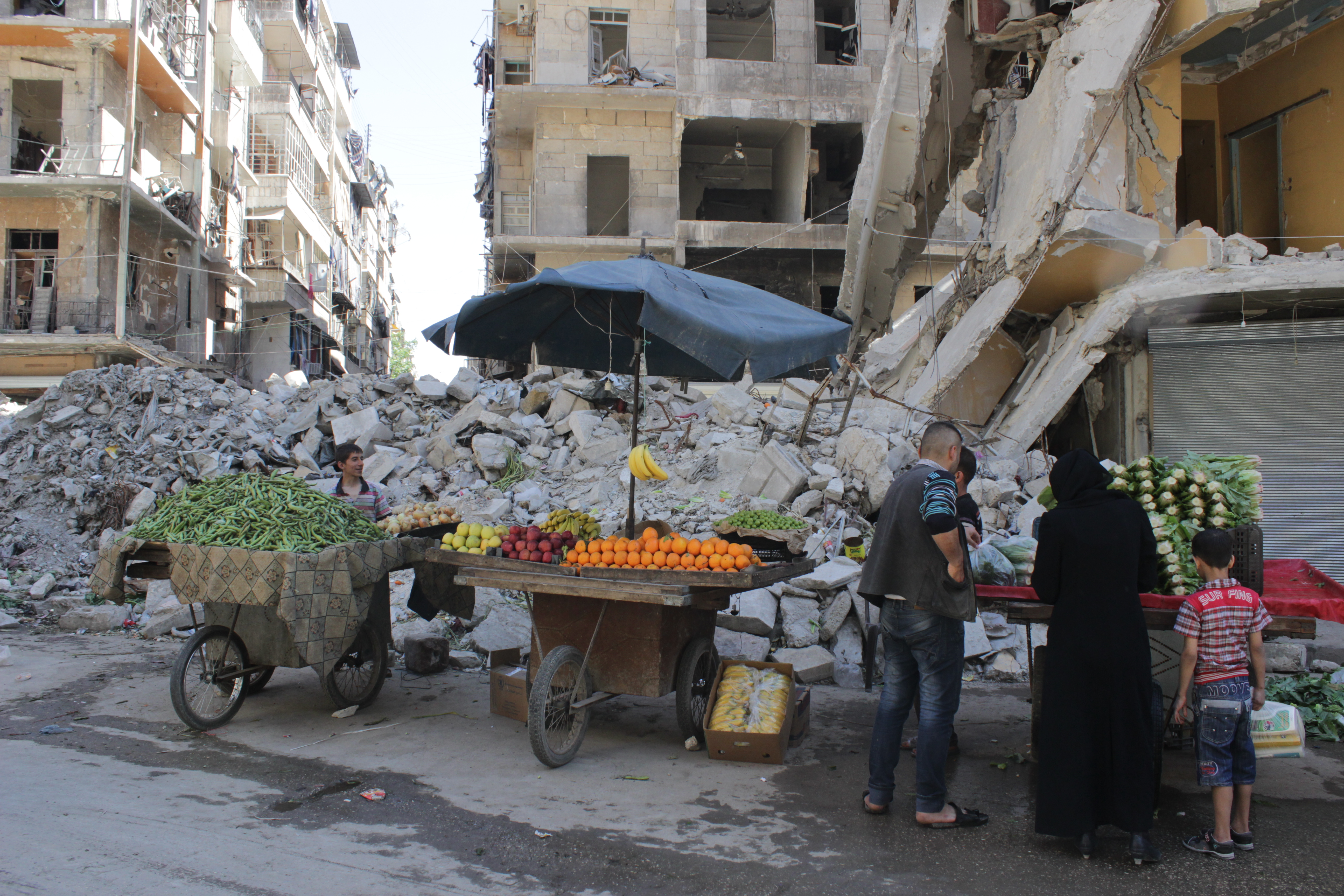The Flames of the Revolution

I feel ashamed when I look back on my past indifference towards the Syrian regime.
I was 55 years old when the revolution erupted. I knew how corrupt, unjust and brutal the government was.
Every Syrian has heard how the government reacted to the Muslim Brotherhood uprising in the city of Hama in the 1980s. Thousands of civilians were killed. Yet I still didn’t hate the regime.
As a university-educated woman, I should have known better.
But in April 2011, when the young men of my city Idlib took to the streets in peaceful protests, waving olive branches and calling for the regime to be toppled, their actions and words touched my heart.
The regime’s reaction was harsh, responding with bullets and detentions.
As the numbers of martyrs and wounded increased, I finally realised that the government must fall.
I decided to join revolution and contribute in whatever way I could. I took part in protests and visited the families of martyrs and detainees to offer them support.
At the time, I was a teacher at a secondary school for girls. Without realising it, I began to favour those students who opposed the regime.
One day while I was teaching, we heard protesters chanting outside. We all got out of our seats and rushed to the windows. A few girls moved closer to me, whispering prayers.
“Please God protect them. Please God be with them.”
They were indirectly trying to tell me that they too supported the revolution.
Tears of joy and fear rolled down my cheeks. I looked around me and found another group of girls giving me hostile looks; they were regime supporters.
As the Free Syria Army (FSA) presence began to grow in the city, the government started to build roadblocks and checkpoints on the streets.
A group of my friends and I decided to express our support and gratitude to the opposition fighters by cooking meals and sweet treats for them.
When we gathered to cook we would sing revolutionary songs and chant anti-government slogans. A wealthy aunt of mine, may her soul rest in peace, would give me money to buy the best meat and other ingredients.
In the evening we would go out to distribute the meals. I remember that one time a young man told me he had never tasted anything so good. I was delighted, and prayed for his good health and victory.
I was so positive and happy during that period; I was convinced that we would win. My optimism peaked when politicians in the United States, the United Kingdom and France announced that Bashar al-Assad had lost all legitimacy and his days as president were numbered.
In January 2012, the names of people wanted by the regime began leaking out of local security service headquarters. I was amongst them.
The charges against me included filming protests and passing the content on to news channels. The accusations were false – I was a terrible photographer and barely knew how to use a computer – but from then, on fear replaced my optimism.
My sister Mayada left her job and her home to flee to Turkey. I was too terrified to go with her so I stayed behind, hoping the situation would be resolved.
Soon after that, Syrian media outlets began speaking of an imminent government attack on Idlib to purge it of militants and terrorists.
I got rid of everything I owned that was related to the revolution: the distinctive scarves and hats we used to wear during demos and the flags we used to carry. I also hid my money and gold jewellery, as the regime’s soldiers were known to steal.
Three days later, on March 10, 2012, the government army entered the city.
I woke up that day to the thundering sound of explosions and bullets. Idlib’s communications, electricity and water had all been cut off. I looked out of my window and saw a group of FSA fighters preparing for battle.
“Allahu Akbar!” they chanted. I was amazed by their resilience.
I quickly prepared some sandwiches and tea for them, then rushed to a safer neighbourhood to hide. The only thing I could do at that stage was pray.
The sandwiches I made for the FSA fighters may have been the last meal they had. Most of them were killed during the battle, may they rest in peace.
Many other were wounded, and all the men aged 50 and under were detained.
The detainees were rounded up in schools and interrogated, some for almost a month. Many of them were later released, others have not been seen since.
When I finally managed to make my way back to my home, it was no longer there.
The regime’s forces had burned it to the ground, along with all the mementos of my life.
But they will never extinguish the flames of the revolution.
Ghada al-Sayed Issa is the pseudonym of a Damascus Bureau contributor from Idlib. The 59 year-old fled Syria and currently lives in Gaziantep, Turkey along with her only daughter.
Read the Arabic version of this article here

